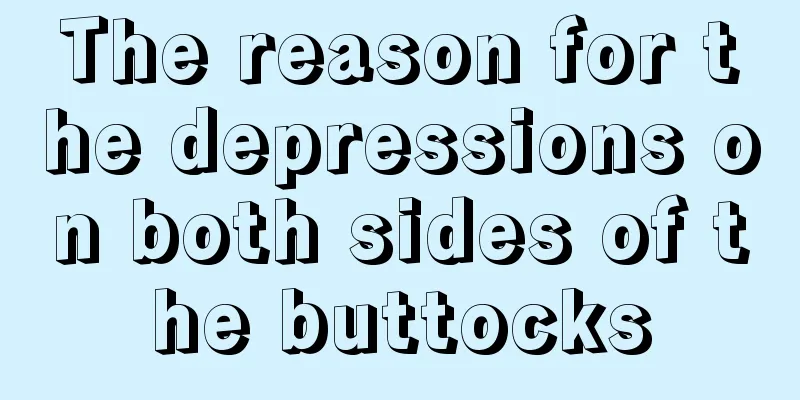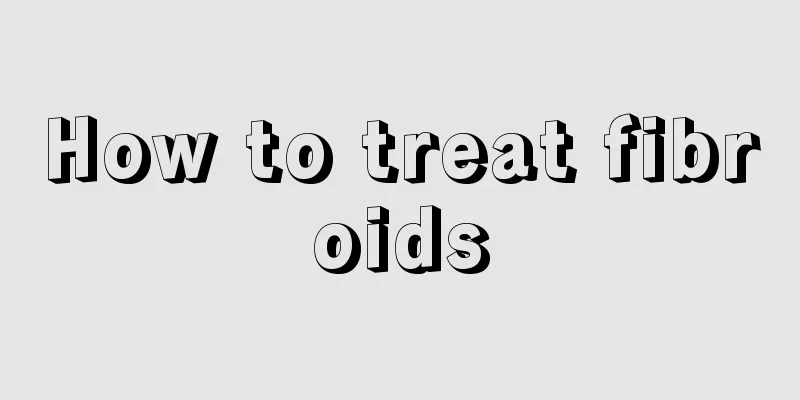I lie down with my heart pounding and I can't sleep

|
A normal person's heart rate should be within a normal range, but some people sometimes feel their heart pounding. There are many reasons that cause your heart to pound, which may be physiological or pathological. Different people's hearts start beating at different times. Some people's hearts start beating as soon as they lie down, making it difficult for them to fall asleep. So what is the cause of this situation? An adult's heart rate exceeding 100 beats per minute is called tachycardia (generally referring to sinus rhythm). There are many causes of tachycardia. In addition to physiological factors, common pathological factors are: (1) Cardiovascular factors: such as active myocarditis, heart failure, etc., can compensate and cause an increase in heart rate. Rapid arrhythmias caused by various heart diseases, such as paroxysmal tachycardia, atrial fibrillation, etc.; (2) Mental factors: such as cardiovascular dysfunction and sympathetic nerve overexcitation, such as patients with β-receptor hypersensitivity, often show tachycardia, accompanied by symptoms such as inattention, shortness of breath after exercise, and cold palms. Tachycardia in menopausal syndrome is also the result of autonomic nervous system dysfunction; (3) Hyperthyroidism: Due to the increase in basal metabolic rate and hyperfunction of the sympathetic nervous system, the heart rate increases, and sometimes premature beats or atrial fibrillation may occur. The patient may also sweat a lot and feel cold or hot; (2) Anemia: Anemia due to various reasons can cause accelerated circulation and compensatory heart rate. (3) Fever, infection, increased metabolism, which can increase the heart rate; wasting diseases such as tuberculosis and tumors can also increase the heart rate; (4) Hypoglycemia: 70% of cases are functional and often recur. Hypoglycemia can reflexively cause excessive secretion of adrenaline, resulting in tachycardia, palpitations, sweating, weakness, anxiety, etc. (5) Pheochromocytoma: It is a tumor of the adrenal cortex that secretes excessive adrenaline, causing paroxysmal palpitations, sweating, cold limbs, tachycardia, and high blood pressure. (8) Drug factors: such as after treatment with drugs such as atropine, epinephrine, and isoproterenol. When the human body is stimulated by cold, it can reflexively cause blood vessels to constrict and the heart rate to accelerate. Supraventricular tachycardia can also be induced by cold factors. |
<<: Is it good for the lumbar spine to lie flat often?
>>: What to do if you can't sleep in a different place
Recommend
How many kilometers can you walk in one hour
For many people, walking is an indispensable part...
What are the common symptoms of fibroids
What are the common symptoms of fibroids? Fibroid...
What are the early signs of lung cancer? Detailed explanation of several early symptoms of lung cancer
Lung cancer is a serious disease for people. It w...
Early prevention methods for rectal cancer
The age of rectal cancer is mostly between 30 and...
Soreness and swelling in the chin and cheeks
Many people experience sore and swollen chins and...
The reason for polycystic kidney back pain is actually like this
Polycystic kidney disease is a genetic disease wi...
What are the traditional Chinese medicine prescriptions for colon cancer
Colon cancer is a common intestinal disease. It h...
Steps for refining coarse salt
I believe everyone has heard of coarse salt. This...
Which is better, sweat steaming or sweating during exercise?
Anyone who has done sweat steaming knows that you...
What is the cost of mid-term treatment for breast cancer?
For early and middle stage breast cancer, if the ...
What are the typical symptoms of morphine poisoning
Although morphine is often used in operating room...
Bleeding from butt crack
As the saying goes, nine out of ten men have hemo...
How does TCM treat prostate cancer based on syndrome differentiation?
Traditional Chinese medicine has a great effect o...
Is milk considered an allergenic food?
Milk is a food that is rich in various nutrients a...
Can severe pneumonia be fatal?
Pneumonia refers to edema and exudation in the ce...









